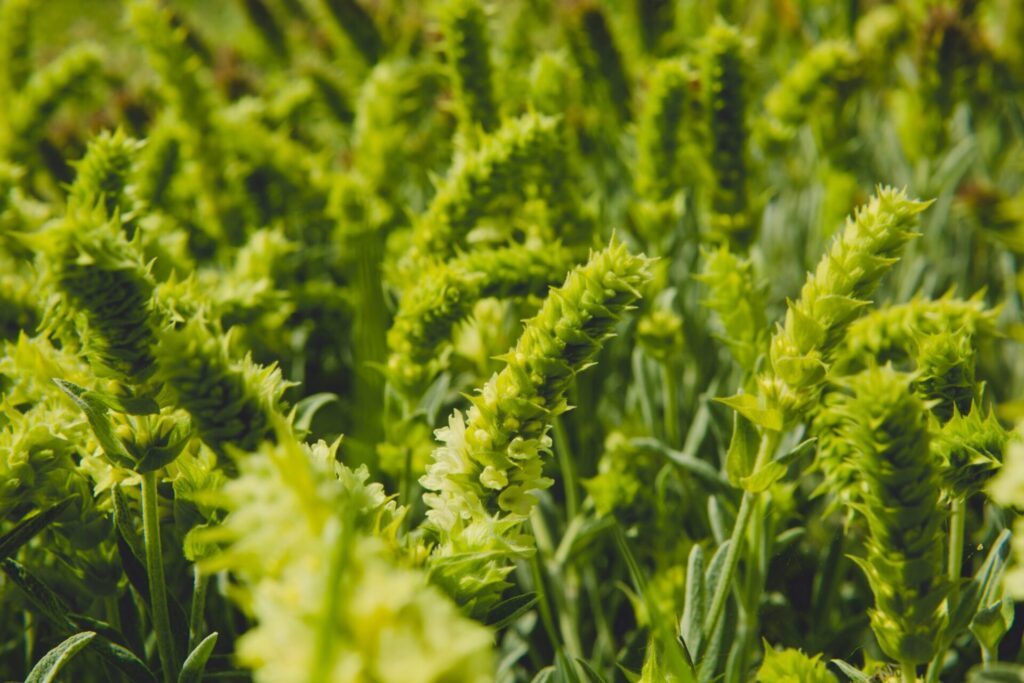Ironwort (Shepherd’s tea)
Sideritis scardica Griseb.
Lamiaceae
The genus name Sideritis comes from the Greek Sideros, meaning iron. There could be a double etymological meaning.
In ancient medicine, Sideritis was a generic reference for plants capable of healing wounds made from iron guns during battles. The other explanation could be linked to the richness of the plant: 200 mg of iron / kg, which is 6 times more than the amount found in lentils for example.
There are 150 species of Sideritis, which are essentially perennial aromatic plants, originating from the Mediterranean basin. The species have been known since ancient times as medicinal plants and are very popular in Greece, Bulgaria and Albania.
They are called “shepherds” because they are mountain plants traditionally picked by shepherds who guard their herds.
In Greece, 4 types of Ironwort are harvested:
- Sideritis perfoliata : Ironwort from Mount Athos and Pindos
- Sideritis raeseri : the most eaten and cultivated species in Greece.
- Sideritis syriaca also called Malotira, endemic of Crete
- Sideritis scardica : Ironwort of Mount Olympus.
The latter is present in the mountains of central and northern Greece. It has an important place in traditional medicine, to facilitate digestion, stimulate the circulatory or immune system and relieve colds.For external use, the plant is used to treat wounds.
In addition to these long-standing properties, modern researches have confirmed that Ironwort is a medicinal plant of great interest in other areas, such as preventing osteoporosis or relieving mood disorders: depression or ADHD (attention deficit disorder with or without hyperactivity).
Ironwort contains polyphenols and flavonoids, natural compounds that act to prevent cardiovascular disease.
Its antioxidant power is equivalent to green tea, having the advantage of not containing caffeine (theine). This action is beneficial in degenerative diseases (Alzheimer’s) or for fighting cellular aging.
Ironwort of Mount Olympus is today threatened by wild gathering.
In the past, the plant was so abundant in some areas that you could harvest the plant using a scythe, while only a few feet remain today. The only important populations are located in the most inaccessible places.
Fortunately, farmers are now cultivating this plant, guaranteeing a supply of quality (growing organically in the mountains) and respectful of the natural resource. Here is a sustainable solution to enjoy the benefits of herbal tea.
The only thing left to do now is to infuse a tablespoon of this plant in quivering water to discover its intense aroma and complex notes of lemon, spices and softwood, particularly sweet and round in the mouth.
